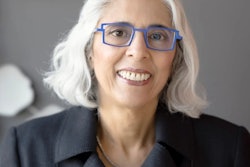Washington, D.C.
Paul Butler, a professor of law at George Washington University and former Washington prosecutor, said Wednesday, that jurors should use their power to be change agents against the dysfunctional policies of the criminal justice system.
To take a stand against the mass incarceration debilitating poor Black and Hispanic communities, Butler called on jurors to evoke a strategy known as jury nullification, a theme Butler discusses widely in his recently published book, Let’s Get Free: A Hip-Hop Theory of Justice.
“The jurors of D.C., I learned, would acquit people that they knew were guilty, mainly in drug cases. The reason that they would say that [the guilty were innocent] is because they didn’t want to send another Black man to jail,” said Butler.
The United States incarcerates more people than any other country in the history of the free world, according to Butler who notes that U.S. prisoners make up 20 percent of the global incarceration rate.
“Of course we should lock up murderers and rapists for the protection of everybody. But we should take a different approach on other issues such non-violent drug crimes. If we release many of the 500,000 people who are locked up for drug crimes, we would be safer,” said Butler, insisting that states like New York that have reduced the prison population have seen their crime rates go down.
At the foundation of Butler’s argument is logic, Butler insisted. Massive incarceration does little to obstruct crime, quell violence, suppress the solicitation of drugs or strengthen communities, Butler said during a debate hosted by the Center for American Progress, an independent Washington think tank.
Butler’s journey from Department of Justice prosecutor to jury nullification advocate also stems from personal experience. Years ago, Butler was arrested on the street and charged with a crime he didn’t commit. Butler has written extensively about the experience of standing alongside the people he’d spent his career sending to prison.
“In the time that I did work [as a prosecutor], I learned some things that profoundly changed the ways that I viewed my responsibility as a prosecutor, as a progressive and as an African-American,” said Butler. “I came to understand that I did not go to law school to put Black people or Hispanic people in prison. I didn’t go to law school to put anybody in prison for whom their being in prison would not do us on the outside any good.”
On deck to refute the former prosecutor’s arguments was friend and former Harvard Law school classmate, Glen Ivey, state attorney for Prince George’s County, Maryland.
Ivey argued that substantive criminal justice reform is certainly necessary, but questioned the efficacy of jury nullification as a sound solution.
“Releasing guys out of jail is not necessarily going to make a community better off,” said Ivey. “As long as you are talking to regular folks who live in high-crime neighborhoods they are going to be ambivalent [to the idea]. Their kids are the ones going to jail and the ones being stopped at random. They are the ones getting the heavier sentences. Their kids are also the ones getting shot.”
“We have to find a way to deal with both aspects of that problem,” Ivey added. “But Paul is right. Massive incarceration is a huge problem. I think one of the things that we need to talk about is how to reduce that. Opening the gates, however, is not what the public wants. The transition [from jail to freedom] has to have clear and well thought out programs.”
Ivey also added that jury nullification can work against an offender. He alluded to a case in Prince George’s County in which an offender was brutally beaten by a police officer. The jurors in the case acquitted the officer of charges.
The jurors were reluctant to tie the hands of other police office, said Ivey; the jurors wanted the police to continue to rid their neighborhood of criminals.
By the debate’s end, both Butler and Ivey agreed that something must be done to curb massive incarceration, particularly in the case of low-income Blacks and Hispanics. They have at least one advocate on Capitol Hill, Sen. Jim Webb, D-Va., who has called for a
Webb recently told a Senate panel that while African-Americans represent 12 percent of the U.S. population and 14 percent of monthly drug users, they represent 37 percent of those arrested on drug charges, 59 percent of those convicted on drug charges, and 74 percent of drug offenders sentenced to prison.
As solutions, Butler recommended better and more efficient social programs that focus on improving K-12 education, job training programs and life skills programs.
© Copyright 2005 by DiverseEducation.com


















